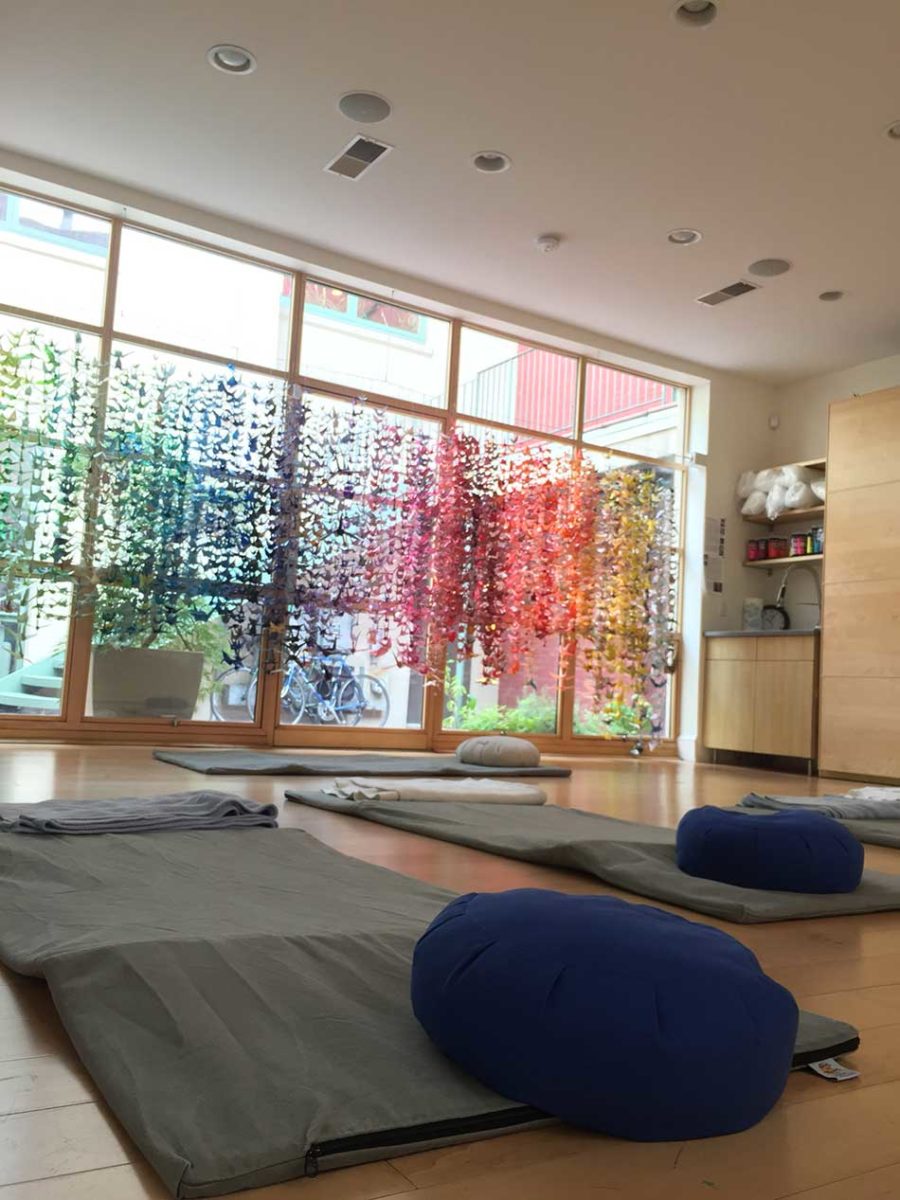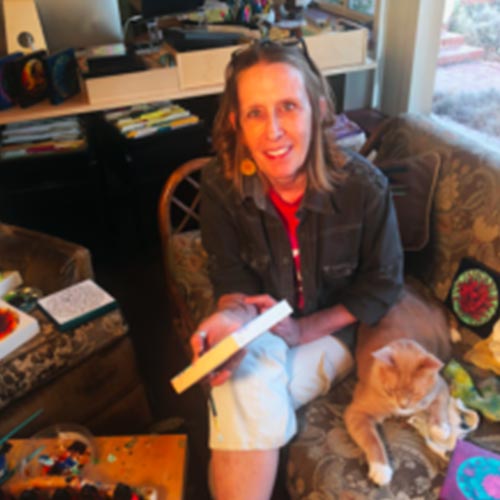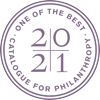with Dr. Mikhail Kogan, MD, Deidre Orceyre, ND MSOM Lac, and Paula Querido Kahn

Cannabis is becoming more widely available as a medicine in the United States as well as throughout the world. Although its medicinal use dates back thousands of years, health care providers trained in modern times during cannabis prohibition and stigmatization have very little knowledge regarding the pharmacology, benefits and risks, and dosing recommendations. Oncology patients are increasingly relying on on-line testimonials or advice from cannabis dispensaries to determine if cannabis may be useful for them. Recent surveys have shown that at least 50% of oncologists would like to have their patients try medical cannabis, but few actively prescribe – mostly due to lack of education on the topic.
This session will outline the basics of the system of cannabinoid receptors and endocannabinoids, review clinical situations where cannabis may be a useful intervention and discuss and demonstrate some of the currently available delivery systems.
The topic is extremely important because of the global increase in the use of medical cannabis. It is being increasingly requested by a variety of different oncology patients. Medical cannabis is in the news on a daily basis and physicians are confronted with a paucity of knowledge and evidence to employ in discussion with their patients, In addition, many may face an ethical dilemma about making a recommendation to use cannabis to their patients in view of its overall illegal status globally. There is also a taboo associated with its consumption which prohibits many patients from discussing it with their physicians. The knowledge gap in this area for both physicians and patients is significant.
Objectives
Objective 1: Enumerate the clinical situations which have the best evidence to support the use of medicinal cannabis as it relates to oncology patients.
Objective 2: Discuss the effects obtained from different strains and modes of delivery of medicinal cannabis
Objective 3: Understand basics of the process of obtaining medical cannabis in the Washington DC and surrounding area.
Enrollment space is limited and we expect this workshop to fill quickly, so register early to guarantee your place! To RSVP, please click the link at the top of this page, call 202.483.8600 or email programs@smithcenter.org.
About Mikhail (Misha) Kogan, MD, ABIOM, RCST
Dr Kogan is a leader in the newly-established field of Integrative Geriatrics. He is the chief editor of the first definitive textbook of the field entitled “Integrative Geriatric Medicine”, published by Oxford University Press as part of Andrew Weil Integrative Medicine Library series and is frequent speaker at a variety of international conferences on the topics of Integrative Medicine and Geriatrics, healthy aging, and geriatrics, as well as neurodegenerative diseases, and use of medical cannabis. Additionally, he has published in both Integrative and Geriatric topics in leading US-based journals.
Dr. Kogan currently serves as medical director of the GW Center for Integrative Medicine and associate director of the Geriatrics Fellowship Program. He is the founder and director of the George Washington University Integrative Geriatrics Fellowship Track and the director of the Integrative Medicine Track program at the George Washington University School of Medicine, as well as serving as part-time faculty member of the George Washington Institute for Spirituality and Health, and the GW Center for Aging, Health and Humanities.
In addition to his academic roles at George Washington University Dr. Kogan serves on a number of national boards and organizations including: the American Board of Integrative Medicine within the American Board of Physician Subspecialists (ABPS), ProCure Art, PlantMed, and others. Dr Kogan is also the founder and the chair of the board of AIM Health Institute, a 501(c)(3) non-profit organization in the Washington, D.C. metropolitan area that provides integrative medicine services to low-income and terminally ill patients regardless of their ability to pay.
In 2017, after a decade of applying integrative approaches to patients with Alzheimer’s disease and optimizing comprehensive metabolic approach, Dr. Kogan founded the MK Cognition Institute (MKCI), dedicated to helping patients with Alzheimer’s disease identify and correct underlying metabolic driverswork, which is primarily based on Dr. Dale Bredesen’s research and newly created ReCode protocol.
For Dr. Mikhail Kogan, the practice of medicine, much like the rest of his life, has been a journey spanning many miles and many cultures, with valuable new learning and different perspectives accruing from each stage along the way. Those many experiences – here and abroad, in the classroom and the clinic, professionally and personally – have given Dr. Kogan the skills, , openness, and inquisitiveness that set him apart, and distinguish him as a committed and caring practitioner within integrative medicine.
Born in Moscow, in the former Soviet Union, Dr. Kogan emigrated with his family in his teens, first to Israel,and then to the United States, where he obtained his medical degree from the Drexel University College of Medicine in Philadelphia, Pennsylvania. He followed a Primary Care and Social Medicine Track residency in Internal Medicine at Montefiore Medical Center in New York City, and a fellowship in Geriatric Medicine at the George Washington University Medical Center in Washington, D.C., which led to a position as an assistant professor of medicine in the Division of Geriatrics and Palliative Care.
In addition to his training in conventional Western medicine, Dr. Kogan has actively pursued a number of other healing arts and practices that have shaped his understanding of and approach to patient care. He is a graduate of a two-year training course in craniosacral therapy–a subtle osteopathic modality that has a wide range of effectiveness for different conditions such as headaches, back pains, and fatigue. He has also completed a four-year program at the Suluk Academy, a teaching center based on the principles and traditions of Sufism, where he learned how to incorporate meditation, mindfulness, and different spiritual practices into his daily life and his work with the patients. Among his many other areas of study are courses in Nutrition, therapeutic use of vitamins, Functional Medicine, botanicals, and other alternative modalities.
Weaving those tools into the fabric of his medical practice has enabled Dr. Kogan to provide innovative and effective treatments to his patients with minimal use of invasive procedures or heavy reliance on medications and to understand the importance of self-exploration, awareness and positive lifestyle changes as essential milestones on his patients’ journeys towards better health.
Dr. Kogan practices Geriatric and Integrative Medicine in a variety of settings: at the George Washington Hospital, at the GW Center for Integrative medicine and the MKCI, as well as serving patients in home visits
Outside of the clinic Dr. Kogan, together with his wife Angela, stays busy raising young sons Peter and Sebastian. True to his calling as an integrative practitioner, his leisure time is replete with healthy lifestyle activities that nourish both body and spirit : he enjoys vigorous exercise, frequent nature walks with his family (and dog), mind body practices such as weekly Sufi Meditation classes, beekeeping and gardening.
About Deirdre Orceyre, ND, MSOM, LAc
Dr. Deirdre Orceyre is a clinically trained, board certified, licensed naturopathic physician and acupuncturist specializing in Integrative Naturopathic Oncology. Dr. Orceyre serves as Naturopathic Medical Director for the GW Center for Integrative Medicine in Washington DC. In addition to her private clinical practice, Dr. Orceyre offers naturopathic consultations and acupuncture to breast cancer patients at the GW Comprehensive Breast Care Center, is adjunct faculty at Georgetown University and is a contributing author of multiple peer-reviewed integrative oncology publications and presentations. She is an active member of the Oncology Association of Naturopathic Physicians (OncANP).
Dr. Orceyre uses diet and lifestyle interventions, herbal medicine, acupuncture, nutritional supplements and homeopathic medicine to help cancer patients minimize side effects of conventional treatments and return to optimal health after treatment. Her goal is to help each individual patient find balance and support – physically, emotionally and spiritually – as they navigate through the cancer diagnosis, treatment, healing process and beyond.
About Paula Querido Kahn
Paula Querido Kahn is Director of Community Engagement at Takoma Wellness Center. She is a licensed occupational therapist and a founding family member of TWC. Paula began her career as a therapeutic recreation specialist with a focus in gerontology. Following employment in adult day health, subacute rehabilitation, and in-patient psychiatry, Paula pursued a master’s degree in occupational therapy at Tufts University. As an occupational therapist, Paula served older adults in rehabilitation and long-term care before joining the family at TWC in January 2014.









